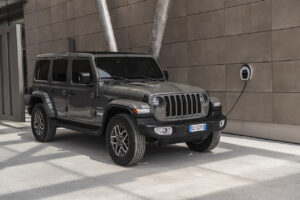
Bill would delay new rules around $7,500 EV tax credits
By onAnnouncements | Legal | Technology
Legislation has been introduced in Congress that would delay the phase-in of electric vehicle (EV) sourcing and manufacturing requirement provisions for OEMs that was included in the final version of the Inflation Reduction Act [IRA].
If passed, the bill, filed Nov. 4, would delay the core stipulations for the $7,500 EV tax credit by three years, until Dec. 31, 2025. It would have the effect of making virtually all EVs eligible for the credit once more, not just those that meet the requirements of IRA.
Under IRA, the EV tax credit will be available until Jan. 1, 2023, but only if the final assembly of the EV happens in North America. A list of qualifying model year 2022 and early 2023 vehicles can be found on the Department of Energy’s website.
After Jan. 1, battery materials sourcing and assembly stipulations come into play, as do MSRP and income caps.
The law splits the tax credit in half. A vehicle is eligible for a $3,750 tax credit if the vehicle has battery components that are manufactured or assembled in North America, and another $3,750 if it has critical minerals that were extracted or processed in the U.S. or countries with which the U.S. has a free trade agreement, or use critical minerals that were recycled in North America.
Only cars under $55,000 or SUVs, vans, and pickup trucks under $80,000 will be eligible for the credit, and buyers’ income will be capped at $150,000 for single filers, $225,000 for head of household, and $300,000 for joint filers.
The bill, as signed by President Biden, was intended to onshore EV vehicle and battery production, and encourage the adoption of zero-emissions vehicles in the U.S.
The move to delay the tax credit requirements, filed in the House by Reps. Terri Sewell (AL-07), Emanuel Cleaver (MO-05), and Eric Swalwell (CA-15), is intended to give certain OEMs more time to meet the new onshoring requirements, sponsors said. That includes the forthcoming Hyundai EV facility scheduled to open in 2025 in Bryan County, Georgia.
Hyundai broke ground for the new factory earlier this month, and expects it to begin commercial production in the first half of 2025 with an annual capacity of 300,000 units. It has said the battery manufacturing facility will be established through “a strategic partnership,” with details to be disclosed at a later stage.
Cleaver, in a statement, said the continued availability of the EV tax credits offer relief to consumers “as oil companies insist on continuing their exorbitant price-gouging of American families at the pump.”
“I’m proud to introduce the Affordable Electric Vehicles for America Act with Congresswoman Sewell as we seek to lower energy costs for American families, create good-paying manufacturing jobs here at home, and accelerate our nation’s transition away from costly fossil fuels and toward affordable, clean vehicles,” Cleaver said. “Our legislation takes important steps to make the historic electric vehicle tax credits passed in the Inflation Reduction Act immediately accessible to consumers, particularly working- and middle-class Americans who would like to purchase an electric vehicle but need the federal credit to do so.”
He said passage “would be a major win for consumers, auto-workers, and businesses alike, and I will work with my colleagues to ensure it is signed into law by President Biden.”
A companion bill was introduced in the Senate by Sen. Rev. Raphael Warnock (D-Georgia).
“I’m focused squarely on helping Georgia car buyers save money and helping car manufacturers who do business in our state thrive,” Warnock said. “The Affordable Electric Vehicles for America Actwill lower costs for Georgians and provide consumers more options when purchasing an electric vehicle, while also supporting good-paying jobs across our state and bolstering Georgia automakers like Hyundai. I’m going to do everything I can to get this bill over the finish line.”
More information
Hyundai breaks ground on first U.S. EV, battery manufacturing plant
Images
The 2022 Jeep Wranger 4xe is among the vehicles that currently qualify for the $7,500 EV tax credit under the provisions of the Inflation Reduction Act. (Provided by Jeep)
